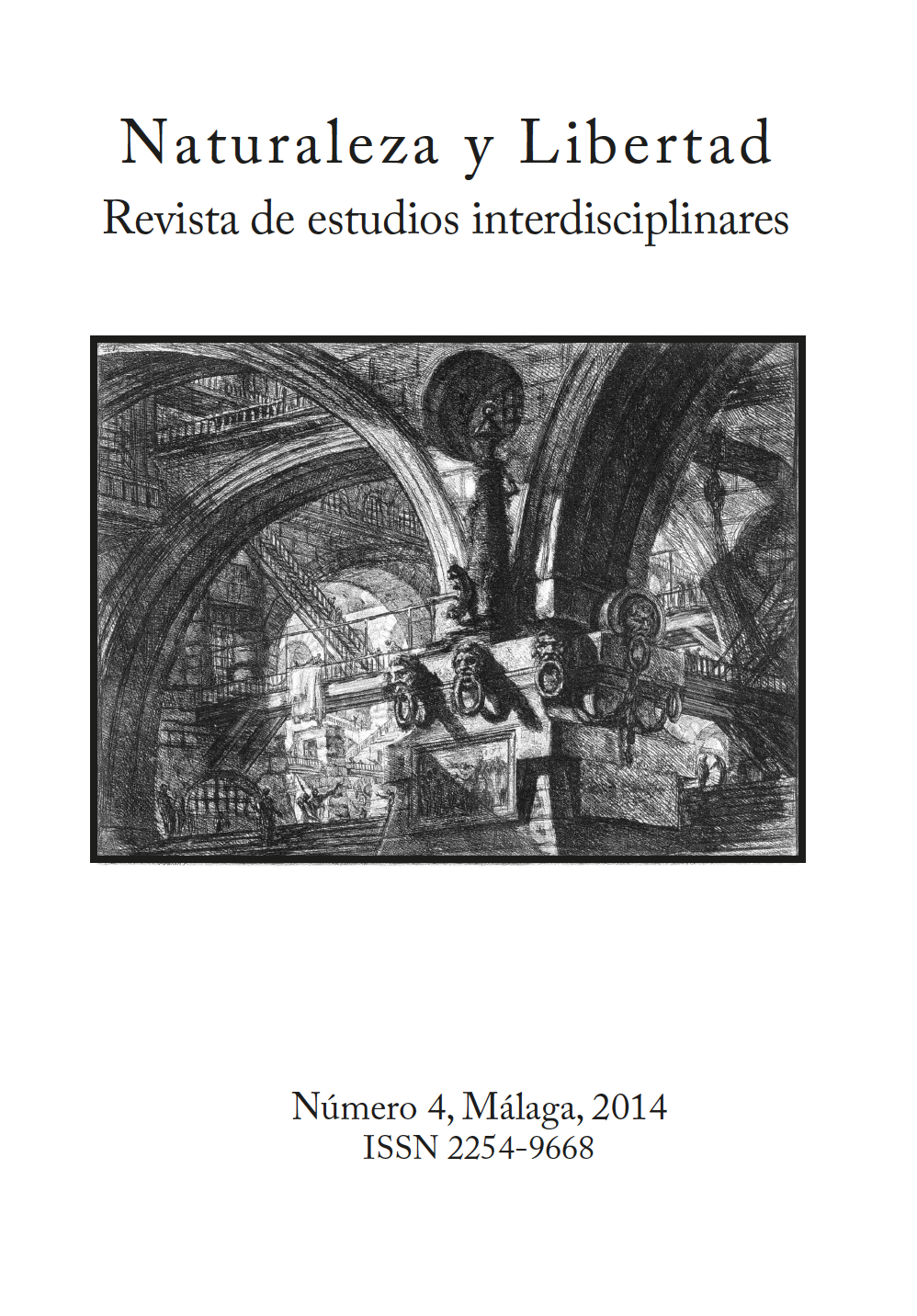Evolución, erotismo y origen de las especies. De vuelta desde Darwin a Platón y Aristóteles
DOI:
https://doi.org/10.24310/NATyLIB.2014.v0i4.6305Keywords:
Darwin, Platón, Aristóteles, evolucionismo, conservacionismoAbstract
El darwinismo parece la victoria final del nominalismo, al relativizar el último
refugio de los universales que eran las especies de Linneo. Pero, aunque ciertamente esas
«originadas» formas de vida asumen una función diferente en biología, todavía son en
cierto sentido ámbitos de supervivencia tras la muerte, y no pueden negar la tensión metafísica
que como lucha por la vida impulsa toda la evolución natural. La densidad ideal de
la vida mantiene la evolución ligada a esencias y substancias en sentido platónico y aristotélico.
Ello explica cómo el erotismo impregna la evolución, hasta llegar, más allá de la
selección natural, al conservacionismo y a la solidaridad
Downloads
Metrics
References
J. Arana, Los sotanos del universo. La determinación natural y sus mecanismos ocultos, Madrid, Biblioteca Nueva, 2012.
B. Beans, E. Eagle's Plume: The Struggle to Preserve the Life and Haunts of America's Bald Eagle, New York, NY, Scribner, 1996
L. Carroll, The Annotated Alice: Alice's Adventures in Wonderland & Through the Looking Glass
J. Choza, Antropología filosófica. Las representaciones del sí mismo, Madrid, Biblioteca Nueva, 2002.
Ch. Darwin, On the origin of species, London, John Murray, 1860.
R. Dawkins, The selfish gene, Oxford, OUP, 1989.
A. Gehlen, Der Mensch. Seine Natur und Stellung in der Welt, 1940.
E. Gilson, D’Aristote à Darwin… et retour. Essai sur quelques constantes de la bio-philosophie, Paris, Vrin, 1971.
B. Goodwin, How the leopard changed its spots. The evolution of complexity, London, Phoenix, 1997.
J. Hernández-Pacheco, Elogio de la riqueza, Barcelona, Tibidabo, 1991.
J. Hernández-Pacheco, «La emergencia de la reflexión. Sobre la idea romántica de naturaleza», en: La inteligencia en la naturaleza. Del relojero ciego al ajuste fino del universo. Ed. F. Rodríguez Valls,
Madrid, Biblioteca Nueva, 2012.
B. Holmes, «The Not-So-Selfish Gene», en: The New Scientist, 7 March 2009.
I. Kant, Grundlegung der Metaphysik der Sitten, Werke in zwölf Bänden. Frankfurt am Main, Suhrkamp, 1977.
A. O. Lovejoy, The Great Chain of Being: A Study of the History of an Idea, 1936.
F. Nietzsche, Die Geburt der Tragödie, KSA, dtv-Ausgab, Bd. 1.
F. Nietzsche, Götzendämmerung, KSA, dtv-Ausgabe, Bd. 6.
F. Nietzsche, Nachgelassene Fragmente 1885-1887, KSA, Bd. 12.
F. O'Rourke, «Aristotle and the Metaphysics of Evolution», en: The Review of Metaphysics, Sep. 2005 (58).
A. Rand, Atlas shrugged.
R. J. Richards, «Did Goethe and Schelling Endorse Species Evolution?», inédito, pero ampliamente disponible en la web como preprint.
A. Schopenhauer, Die Welt als Wille und Vorstellung, IV, 57, Suhrkamp sämtliche Werke, I.
F. J. Soler Gil, Mitología materialista de la ciencia, Madrid, Encuentro, 2013.
P. Vorzimmer, «Darwin, Malthus and the Theory of Natural Selection», en: Journal of History of Ideas, 1969 (30, 4).
Downloads
Published
How to Cite
Issue
Section
License
Those authors who have publications with this journal, accept the following terms:
1. Copyright and licensing information are clearly described on the journal’s web site: all content published in Naturaleza y Libertad is open acces without limit, and are subject to the Attribution-NonCommercial-ShareAlike 4.0 International (CC BY-NC-SA 4.0) license. The full text of which can be consulted at https://creativecommons.org/licenses/by-nc-sa/4.0/
2. It is the responsibility of the authors to obtain the necessary permissions for the images that are subject to copyright. The authors whose contributions are accepted for publication in this journal will retain the non-exclusive right to use their contributions for academic, research and educational purposes, including self-archiving or deposit in open access repositories of any kind. The electronic edition of this magazine is edited by the Editorial de la University of Malaga (UmaEditorial), being necessary to cite the origin in any partial or total reproduction.
3. This journal allows and encourages authors to publish papers on their personal websites or in institutional repositories, both before and after their publication in this journal, as long as they provide bibliographic information that accredits, if applicable, your posting on it.
4. In no case will anonymous papers be published.





18.png)













